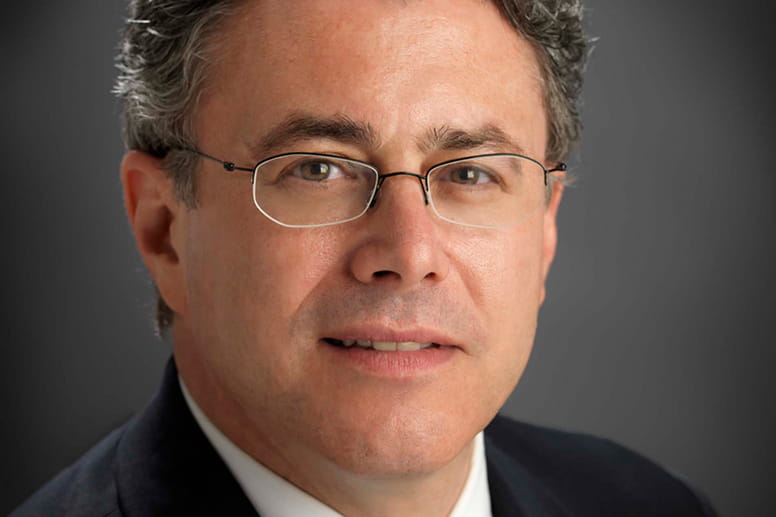Mindfulness expert to offer free lecture at Geisinger Commonwealth School of Medicine
On Oct. 3, Dr. Michael Baime will discuss how practicing mindfulness can improve physical and psychological health
Whether it’s habitually reaching for a cigarette, opting for the remote instead of the treadmill or choosing chocolate over fruit, people trapped in cycles of self-destructive behavior often wonder, “Why do I always do this?” According to Michael Baime, MD, of the Perelman School of Medicine at the University of Pennsylvania, these patterns of behavior are rote reactions that can be countered by mindfulness. Mindfulness, he said, is a “particular way of paying attention: on purpose, in the present moment and non-judgmentally.”
Dr. Baime, director of the Penn Program for Mindfulness and the director of Mind-Body Programs for the Abramson Cancer Center at the University of Pennsylvania Health System, will present a free lecture on “Mindfulness for Life” at Geisinger Commonwealth School of Medicine (GCSOM) on Wednesday, Oct. 3 at 5:30 p.m.
During the lecture, Dr. Baime will discuss how the practice of mindfulness works and how it can result in better health. “By learning to pay attention better, we recognize patterns and habits and learn to change our course instead of continuing to have an argument, or to eat too much, or smoke, or drink. Instead we can take a fresh start and do something different than our normal pattern,” he said, adding that anyone can learn the practice of mindfulness.
He said mindfulness is associated with a wide variety of health benefits, including improved immune function, decreased pain and even resistance to respiratory illnesses and colds. The most significant benefits, however, are the psychological. According to Dr. Baime, when people learn to practice mindfulness they report a decrease in anxiety, anger and confusion and report feeling happier and say their relationships work better. Dr. Baime also said mindfulness results in actual physical changes in the brain, specifically in the structure of the neural systems that manage attention.
His talk is the sixth installment of GCSOM’s popular Preventive Medicine Lecture series. For more information or to RSVP, visit geisinger.edu/octprevmed, call 570-504-9685 or email events@som.geisinger.edu.
About Dr. Baime
Michael Baime, MD, of the Perelman School of Medicine at the University of Pennsylvania, is the director of the Penn Program for Mindfulness and the director of Mind-Body Programs for the Abramson Cancer Center at the University of Pennsylvania Health System. He started to teach mindfulness in the clinical setting out of his primary care in internal medicine at The Graduate Hospital, where he served as the chief of general internal medicine. Since its inception in 1990, the Penn Program for Mindfulness has enrolled more than 20,000 individuals in an acclaimed eight-week mindfulness-based training course. The course has been adapted to address a wide range of clinical and professional needs, and customized programs have been developed for use by judges, doctors, construction workers, psychotherapists, police officers and CEOs.
Dr. Baime graduated from Haverford College in 1977 and from the School of Medicine at the University of Pennsylvania in 1981, then completed post-graduate training in internal medicine at the Graduate Hospital in Philadelphia. He is currently a clinical associate professor of medicine at the Perelman School of Medicine at the University of Pennsylvania. He has published research in psychology, business, cognitive neuroscience and medicine. Dr. Baime has been the recipient of the Provost’s Award for Distinguished Teaching at Penn as well as the Appel award for student work in psychiatry. He was the 2016 recipient of the American College of Physicians Award for Distinguished Contributions in Behavioral Medicine. He is widely recognized for his innovative educational programming and his interactive and engaging presentations.
About Geisinger
Geisinger is among the nation’s leading providers of value-based care, serving 1.2 million people in urban and rural communities across Pennsylvania. Founded in 1915 by philanthropist Abigail Geisinger, the non-profit system generates $10 billion in annual revenues across 134 care sites - including 10 hospital campuses, and Geisinger Health Plan, with 600,000 members in commercial and government plans. The Geisinger College of Health Sciences educates more than 5,000 medical professionals annually and conducts more than 1,400 clinical research studies. With 26,000 employees, including 1,600 employed physicians, Geisinger is among Pennsylvania’s largest employers with an estimated economic impact of $14 billion to the state’s economy. On March 31, 2024, Geisinger became the first member of Risant Health, a new nonprofit charitable organization created to expand and accelerate value-based care across the country. Learn more at geisinger.org or connect with us on Facebook, Instagram, LinkedIn and X.

Elizabeth Zygmunt
Director, Media and Public Relations
Office: 570-504-9687
On Call: 570-687-9703
ezygmunt@som.geisinger.edu
